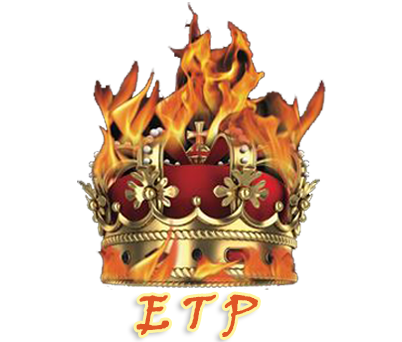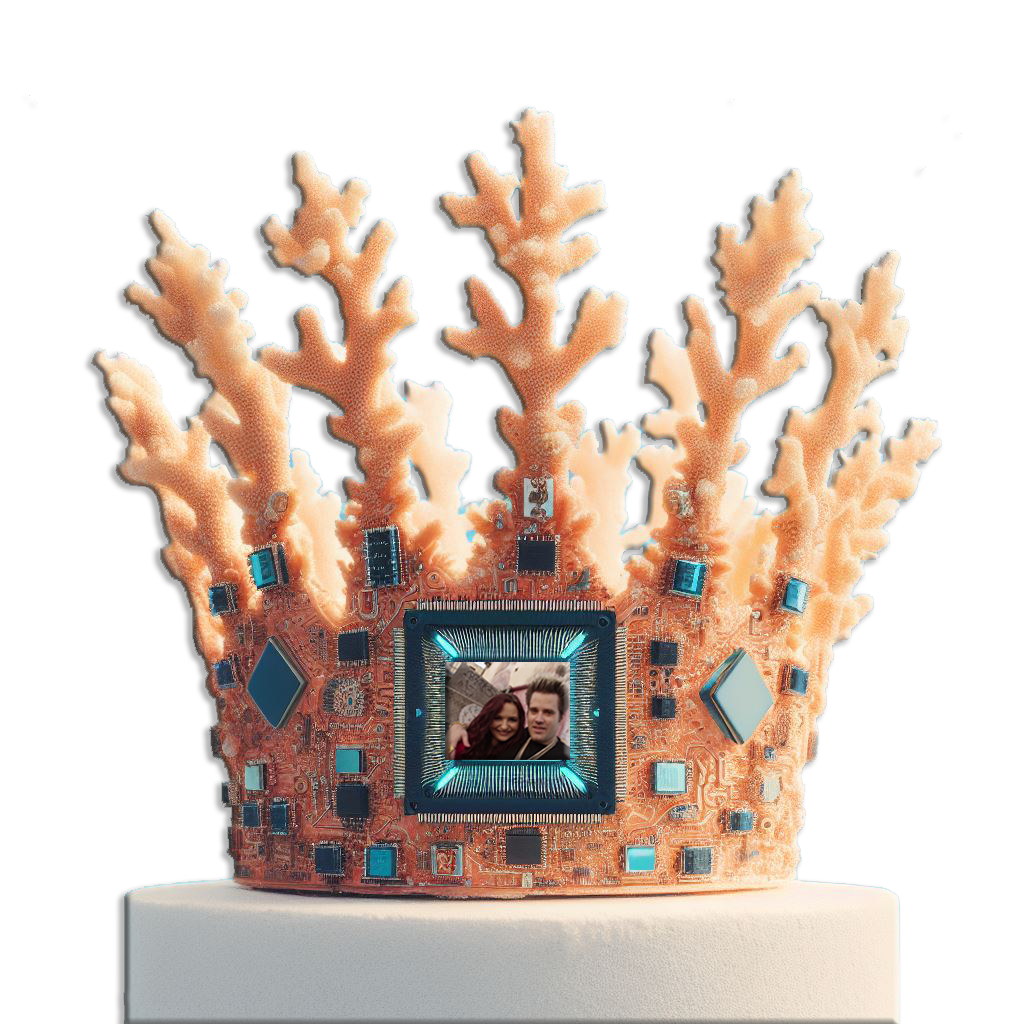Having two parents as medical doctors has it benefits. I get to have immediate treatment for any emergencies, I can ask them any question about medicine or remedies for anything… we’ve got all sorts of pharmaceutical drugs in the house for any ailment, and I have a wonderful house to live in. The greatest benefit though, is them being able to see exactly what it is that is holding me back and how to fix it. My parents know how to diagnose problems based on behavioral science, observation, and experience. Many people out there are suffering from minor mental disorders and their life isn’t what it could be if they had a healthier, better balanced brain. Don’t believe me? Watch this.


I have manic bipolar and ADD.
Classic ADD: Inattentive, distractible, disorganized, hyperactive, restless, and impulsive. Yep.
Manic Bipolar: increased energy and mental activity, a heightened mood and super self-confidence, experience grandiose thoughts and an inflated sense of self-importance, experience racing speech, racing thoughts, and reckless behavior. Yep.
I do great on adderall and lamictal twice a day. I hadn’t been taking it and I was getting into alcohol and smoking weed, I was doing cocaine and occasionally taking ecstasy pills. Depending on your social circle, reading that may ‘shock’ you, or you can relate to self medicating through recreational drugs. I do best when I work out regularly, drink plenty of water, get cardio each day, and take the right supplements. I’ve stopped drinking and smoking altogether, and I’ve never felt better. It’s a lot easier to quit when you see what’s actually happening to your brain. Here’s an image of brains on different types of drugs & on alcohol.

So there’s something Dr. Amen dubbed Automatic Negative Thoughts or ANT’s. Let’s discuss them. So, every time you have an angry, unkind, sad or cranky thought, your body releases chemicals that activate your brain’s limbic system. If you take the time to notice how positive thoughts affect your body you’ll find that for every good, happy, hopeful or kind thought your brain releases chemicals that cool your brain’s limbic system. The limbic system is responsible for translating our emotional state into physical feelings of relaxation or tension. Your body reacts to every thought you have, whether about friends, family or anything else. Think of negative thoughts as pollution. Every cell in your body is affected by every thought you have. Negative thoughts pollute your limbic system, your mind, and your body. Understand that your automatic thoughts don’t always tell the truth- Even if your thoughts just happen, they are not necessarily correct. You don’t have to believe every thought that goes through your head. It is important to think about your thoughts to see if they help you or hurt you.
There are nine types of ANTs:
1. Always/never thinking – This happens when you think something that happened will “always” repeat itself, or that you’ll “never’ get what you want. Words like always, never, no-one,every one, every time, everything are usually wrong. If you catch yourself thinking in these absolutes, stop and make yourself recall examples that disprove your all or nothing attitude. “I made so many mistakes. If I can’t do it perfectly I might as well not bother. I won’t be able to get all of this done, so I may as well not start it. This job is so bad…there’s nothing good about it at all.”
2. Focusing on the negative – This occurs when your thoughts reflect only the bad in a situation and ignore any of the good. This doesn’t mean being dishonest with yourself, but you can actively seek to find the positive to give more balance and optimism to a world you experience too often as negative.
3. Fortune-telling – This is where you predict the worst possible outcome to a situation. Just having this thought will make you feel tense. This is a RED-ANT, because when you predict bad things, you help make them happen. If you could see the future, you’d be a lottery billionaire by now!
4. Mind reading – This happens when you believe that you know what other people are thinking, even when they haven’t told you. This is also a RED-ANT. Dr. Amen tells people, “please don’t read my mind, I have enough trouble reading it myself!” A negative look from someone may mean nothing more than that he or she has a stomach ache. You can’t read anyone else’s mind.
5. Thinking with your feelings – This occurs when you believe your negative thoughts without ever questioning them, usually thoughts that start with the words “I feel.” You tell yourself, “I feel this way, so it must be so.” Feelings are very complex and often based on powerful memories from the past. Feelings sometimes lie to you, but they are just feelings, not necessarily the truth. Look for the evidence behind the feeling to check its truth.
6. Guilt beating – these happen when you think with words like should, must, ought or have to. Guilt is not a helpful emotion for the limbic system and may cause you to do things you don’t want to do. It is better to replace “guilt beatings” with phrases like “I want to do….” “It fits with my goals to do….” “It would be helpful to do…..” Guilt isn’t productive. Get rid of the emotional turbulence it produces and that holds you back from achieving the goals you want.
7. Labeling – Whenever you attach a negative label to yourself or to someone else, you stop your ability to take a clear look at the situation – you lump yourself or the other person into a category that leaves you unable to deal with him/her in a reasonable way, and prevents recognizing him/her as a unique individual.
8. Personalizing – occurs when you invest innocuous events with personal meaning, such as, “My teacher frowns when she looks at me. She must hate me.” There are many reasons for others behavior besides the negative explanations that an overactive limbic system picks out. You never fully know why people do what they do. Try not to personalize the behavior of others.
9. Blaming – this is the most poisonous RED-ANT, very harmful.
When you blame something or someone else for the problems in your life, you become a passive victim of circumstances and you make it very difficult to do anything to change your situation. The bottom-line thinking in the “blame game” goes like: “If only you would do something differently, I wouldn’t be in this predicament. It’s your fault and I’m not responsible.”
10. Over-generalisation – coming to a general conclusion based on a single event or one piece of evidence.
If something bad happens once, you expect it to happen again and again. Such thoughtsoften include the words “always” and “never.” “I forgot to finish that project on time.” “I never do things right.” “He didn’t want to go out with me.” “I’ll always be lonely.”
11. Filtering – selective abstraction:
Concentrating on the negatives while ignoring the positives. Ignoring important information that contradicts your (negative) view of the situation. “I know my boss said most of my submission was great but he also said there were a number of mistakes that had to be corrected…he must think I’m really hopeless.”
12. Catastrophizing – overestimating the chances of disaster:
Expecting something unbearable or intolerable to happen. “I’m going to make a fool of myself and people will laugh at me. What if I haven’t turned the iron off and the house burns down.”
13. Emotional Reasoning: – mistaking feelings for facts.
Negative things you feel about yourself are held to be true because they feel true. “I feel like a failure, therefore I am a failure. I feel ugly, therefore I must be ugly. I feel hopeless, therefore my situation must be hopeless.”
14. Magnification/Minimisation – tendency to exaggerate the importance of negative information or experiences.
While trivializing or reducing the significance of positive information or experiences. “He noticed I spilled something on my shirt. I know he said he will go out with me again, but I bet he doesn’t call. Supporting my friend when her mother died still doesn’t make up for that time I got angry at her last year.”
Dr. Amen’s got a clinic in Orange County, and a library full of books he’s written – I suggest reading them. Here’s some things that a SPECT scan can do for you. Here’s an intro packet with all you need to know.
1. How do you know unless you look
Psychiatrists are the only medical specialists who rarely look at the organ they treat. Psychiatrists continue to make diagnoses the same way they did 100 years ago, based on clinical exams and symptom clusters. There is a better way. SPECT imaging is a clinically useful way to look at brain function.
2. Real answers
SPECT helps provide answers to mental health problems and helps clinicians ask better and more targeted questions, such as about ADHD, head injuries, toxic exposure and past emotional traumas.
3. Tailor treatment to your brain
Imaging plus detailed histories help us better understand your brain, so treatment can be individually tailored, rather than just diagnosing and treating vague diagnostic categories such as depression or ADHD.
4. Help prevent mistakes
More information prevents clinicians from prescribing the wrong treatments, such as unnecessarily stimulating an already overactive brain or calming one that is underactive.
5. Early detection to prevent Alzheimer’s
SPECT scans can tell up to 9 years before you have symptoms whether or not you are vulnerable. Treatment and prevention strategies work early, not late.
6. Whole person approach
ACI takes a whole person approach and uses scans to help guide not only medication interventions, but also natural supplements and other innovative treatments.
7. See if your treatment is working
Follow up scans can help see which treatments are effective and which are not. It is critical to know if your treatment is helping or hurting your brain.
8. Help understand and treat addictions
A SPECT scan can help understand the reasons that underlie addictions and help guide treatment.
9. Identify brain trauma
A SPECT scan can identify specific areas of the brain hurt by trauma to better target treatment and help deal with insurance, legal and rehabilitation issues.
10. Know your type
ADD, anxiety and depression are not single or simple disorders. One treatment does not fit everyone. Dr. Amen has described 7 types of ADD, 7 types of anxiety and depression and 3 types of violence. Imaging helps you see the underlying brain problems so treatment can be more targeted.
11. Help for families
A SPECT scan can help families understand the underlying medical reasons for a problem, which helps decrease shame, self blame and conflict.
12. Check the health of your brain
Even if you are not having trouble, SPECT scans can help check the health of your individual brain. Scans can be used as a screening tool to know your vulnerabilities. They can also serve as a baseline if you develop problems in the future.
13. Most experience
ACI has the world’s largest database of brain scans related to behavior (nearly 50,000) and the most experience. We have been ordering and performing brain SPECT scans for over 16 years. ACI has seen patients from all 50 states and 71 countries.
14. Pioneer
Through research and education ACI has helped to pioneer brain SPECT imaging in clinical psychiatric practice.
15. Improve compliance
Pictures are powerful and can help influence a patient’s willingness to accept and adhere to a treatment program.
16. Decrease shame and stigma
SPECT scans help patients better understand their problems, decreasing shame, guilt, stigma and self-loathing.
17. Legal issues
Scans may be helpful in a number of legal situations, such as helping judges and juries understand difficult behavior and directing treatment.
18. The future now
SPECT scans can help you obtain individualized care for your brain. Thomas Insel, MD, PhD, Director of the National Institute of Mental Health, said “Brain imaging in clinical practice is the next major advance in psychiatry.”

Everyone can benefit from having a healthier brain (remember always wear a helmet!). Brain trauma can really mess with your life… because Soccer players hit the ball so much with their head, they usually have emotional problems later on in life, and painters inhale too much of that fume and it messes with their mind too – just like coal miners would go crazy. There’s stuff like St. John’s Wart, Inostol, L-Tyrosine, DLPA, 100% multivitamins, Adderall, Grape-seed extract, French Pine Bark Extract, and even raspberry extract.
If you’re facing some major issues in your life, such as constant drinking, smoking, and any other types of addictions – keep in mind you may just be self-medicating, and all of that effects your brain more than you know, and your brain effects each area of your life more than you know. Go see a psychiatrist, find out if there’s anything out there that can help you, don’t be embarrassed.
I’m working on an app for the app store called Quality Questions, it will have pop up messages of the following questions, at random intervals – and you’ll be able to respond back like a text message and keep a journal.
What am I excited about?
Who do I want to meet?
What did I learn today?
What have I been avoiding that needs to get done?
Is there anyone I’ve been meaning to talk to?
How can I help someone else today?
What am I most grateful for?
What are some reasons I can feel like a success right now?
What am I absolutely committed to and why?
What two or three actions could you take right now that would create the most impact on your wellbeing?
Where can I be more efficient in my life?
What 5 things have I been procrastinating?
What are my time wasters?
What excuses keep me stuck?
How can I create another or larger income stream?
How can I increase my overall abundance?
In what areas do I want to receive more learning?
How can I be more productive and effective?
What are my deepest heart-felt desires, dreams and visions?
Where are my life purpose and goals unclear?
When do I feel greatest happiness in my life?
What can I do to have more fun in all areas of my life?
How can I get more stillness, solitude and peace in my life?
Am I happy about where I am today?
What do I truly desire?
What motivates me?
What really makes me tick?
How can I experience a greater sense of meaning in life?
What new ideas are teasing me these days?
Where are some opportunities for me to give?
What makes me happy?
Who do I consider extraordinary, and what can I do to connect with them today?
What am I ready for?
What’s most important to me right now?
What do I want to see happen today?
What can I joyfully do right now with passion?
What am I truly excited about enough to do something about it or call someone and get them involved right now?
What incomplete project in my life, if completed, would increase the quality of my life by 10x?
Who loves me?
What is something that I could feel great about right now?
What could be some reasons for me to be joyful right now?
What are some things I could be thankful for if I wanted to be?
Who could I get a gift for today?
What were your dreams as a child?
What could be great about this?
What’s not perfect yet?
What am I willing to do to make it the way I want?
What am I willing to no longer do in order to have things the way I want them?
How can I do what is necessary to get this job done and enjoy the process?
What is the thing you are most proud of accomplishing in your life so far?
What will you regret not doing in your life if you continue as you are now?
What do you do better than most people you know?
If you could do anything you want to tomorrow, what would it be?






